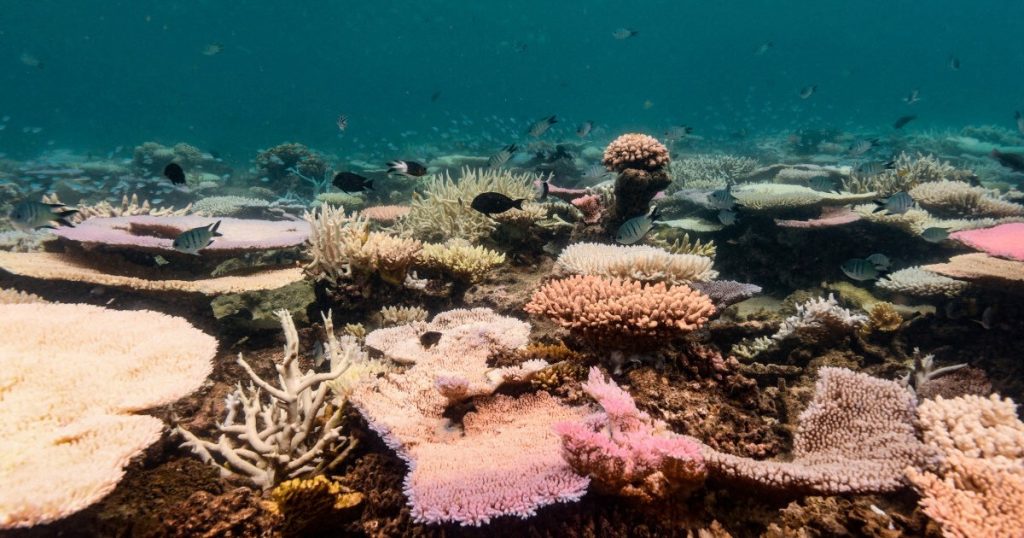The world is experiencing its fourth global bleaching event in the last three decades, with many colourful coral reefs turning a ghostly white as a result of climate change. At least 54 countries and territories have reported mass bleaching along their reefs since February 2023, as warmer ocean temperatures trigger corals to expel the algae living in their tissues. The loss of the algae’s nutrients leads to the eventual death of the corals, as they are unable to survive without their symbiotic relationship with the algae.
The current bleaching event, which has affected coral reefs in both the northern and southern hemispheres of each major ocean basin, has been exacerbated by the El Nino climate pattern causing warmer sea temperatures. Sea surface temperatures have broken records over the past year, with the effects of El Nino compounded by ongoing climate change. Australia’s Great Barrier Reef, the largest coral reef system in the world, has been severely impacted, along with other regions such as the South Pacific, the Red Sea, and the Gulf. The Caribbean reefs experienced widespread bleaching last August, with mass die-offs documented across the region.
Scientists have warned that many of the world’s reefs may not recover from the intense and prolonged heat stress they are experiencing. While some corals may survive the immediate heat stress, the long-term prognosis for their survival remains uncertain. Recurring bleaching events are challenging earlier scientific models that predicted significant coral reef loss with just 1.5 degrees Celsius of global warming above pre-industrial temperatures. With the world having already warmed by 1.2 degrees Celsius, experts warn that coral-dominated ecosystems could become non-existent at this temperature.
The devastation caused by this year’s global bleaching event has raised concerns among scientists about the future of coral reefs. Many believe that coral reefs have crossed a tipping point and are now in irreversible decline, unless drastic action is taken to reduce carbon dioxide emissions driving climate change. The urgent need to curb emissions and address the root causes of warming oceans is crucial to preserving these valuable ecosystems. Without immediate action, corals and the diverse marine life they support may be lost forever, leading to significant environmental and ecological consequences globally.














